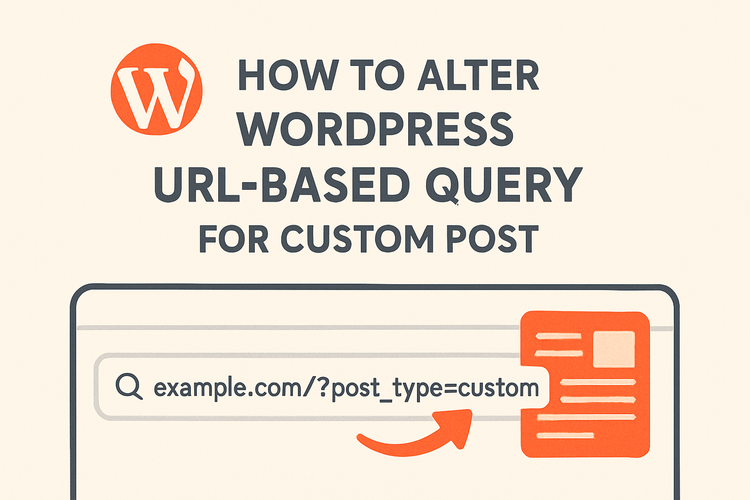How To Alter Wordpress Url Based Query For Custom Post

Understanding WordPress URL-Based Queries for Custom Post Types
WordPress allows developers and site administrators to query content through URL parameters. When it comes to custom post types, knowing how to manipulate these queries can improve content delivery and enhance user navigation.
By default, WordPress uses query strings like ?post_type=your_custom_type to fetch posts of a specific type. However, customizing these parameters can allow more advanced queries, such as filtering by taxonomy, custom fields, or even joining with default post types. This flexibility makes it easier to build tailored experiences, especially for niche applications like dynamic inventories or filtered construction components such as Post Base products or Angle Brackets.
Custom Rewrite Rules and Pretty Permalinks
To take full advantage of WordPress's URL structure, implementing custom rewrite rules is essential. These rules allow developers to transform URLs into cleaner, human-readable formats without compromising the underlying queries.
Pretty permalinks improve user experience and SEO. Instead of messy URLs like ?post_type=product&category=joist-hangers, you can create clean slugs like /products/joist-hangers/. Using WordPress's add_rewrite_rule() function, it's possible to define specific patterns that match custom post types and forward them to the appropriate query variables. This method is particularly useful for eCommerce platforms or structural component libraries, for example, listing Joist Hangers under a well-organized URL schema.
Note that when you add or modify rewrite rules, you’ll need to flush the rewrite rules cache—either by visiting the Permalinks settings or programmatically using flush_rewrite_rules(). This helps ensure the new rules are recognized and applied correctly across your site.
Query Vars and Pre_get_posts Modification
Customizing WordPress URL queries for custom posts often involves leveraging the pre_get_posts action. This hook lets you intervene before WordPress finalizes its query, allowing you to programmatically inspect and adjust query variables based on the requested URL.
This method is powerful and flexible. Instead of complex URL parameters, you can use logical conditions in PHP to detect the presence of a slug or taxonomy and adjust the post_type, meta_query, or tax_query fields accordingly. It ensures that when a user lands on a category like Timber Frame Connectors, the site only displays items from the associated custom post type, even if the URL doesn't explicitly mention it.
One important consideration when using pre_get_posts is to check if the main query is being modified—use $query->is_main_query() to avoid interfering with other queries on the same page. You can also ensure that the changes only apply on the front-end and not in the admin dashboard with !is_admin().
Using WP_Query with Custom Slugs
In addition to the default main query, WordPress offers WP_Query for custom, granular content retrieval. This is especially useful when building archive or single-post template files for a specific set of structural products like Connectors for Glulam Timber.
With WP_Query, you can construct targeted queries with parameters for post_type, taxonomy, meta_key, and more. You also have the freedom to combine these parameters, filter by date, sort by field values, and limit results. Implementing this within a custom page template allows for dynamic rendering of filtered data based on user-input from customized URLs or form submissions.
Moreover, URL query parameters can be captured and sanitized using $_GET and then passed appropriately into WP_Query arguments. This provides a secure and dynamic control mechanism for users to explore content specific to structural brackets, base plates, and wind load connectors without having to reload entire pages or dig through irrelevant content.
Pagination and SEO Considerations
URL-based queries and custom post types introduce some challenges when it comes to pagination and search engine visibility. Proper attention must be paid to how pagination is handled within custom queries to ensure seamless navigation and crawlability.
WordPress natively supports pagination through the use of paged query variables. However, when combined with custom URLs or taxonomies, you may need to incorporate these variables into your rewrite rules or include them as parameters in WP_Query. Failing to do so can result in 404 errors or duplicate content issues, which can affect both usability and SEO.
It's also a good idea to use canonical tags and structured data to inform search engines about the hierarchical relationships in your content. For instance, when navigating through paginated archive listings of Restraint Straps under a custom slug, make sure each canonical URL properly reflects the current page with ?page=n appended or defined via rewrite rules.
